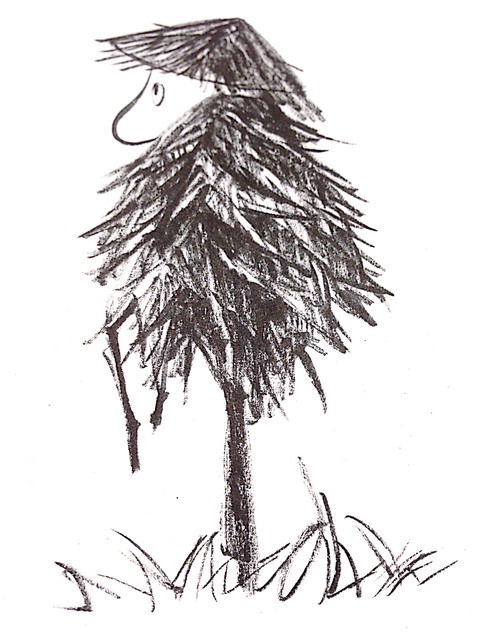# Kuebiko
Kuebiko generates URLs from ruby code.
[](http://badge.fury.io/rb/kuebiko)
[](https://travis-ci.org/tsukasaoishi/kuebiko)
[](https://codeclimate.com/github/tsukasaoishi/kuebiko)

## Usage
URLs generator class inherits Kuebiko::Url.
```ruby
class ArticleUrl < Kuebiko::Url
material :article
scheme :http
host "kaeruspoon.net"
def show
build "articles", article.title
end
end
```
You can generate path or URL.
```ruby
article.title #=> "first_day"
ArticleUrl.show_path(article) #=> "/articles/first_day"
ArticleUrl.show_url(article) #=> "http://kaeruspoon.net/articles/first_day"
url = ArticleUrl.new(article)
url.show_path #=> "/articles/first_day"
url.show_url #=> "http://kaeruspoon.net/articles/first_day"
```
Methods of suffix ```_path``` generate only path.
Methods of suffix ```_url``` generate URL.
```show``` instance method is called from ```show_path``` method (or ```show_url```).
### Resources that make up URL
You can specify name of material. The material name will use as internal accessor name.
```ruby
class ArticleUrl < Kuebiko::Url
material :article
def hoge
build article.title # article is the internal accessor
end
end
```
You can pass the material object to the initializer or generator class methods.
```ruby
url = Article.new(article)
Article.show_path(article)
```
The internal accessor returns nil if you do not pass the material object.
You can specify more than one materials.
```ruby
class ArticleUrl < Kuebiko::Url
material :article, :user
end
```
The order in which you specify the materials will be the order of the objects to pass to the arguments.
```ruby
url = ArticleUrl.new(article, user)
```
The name ```options``` is reserved as internal accessor.
### Components of URL
You can specify default components.
```ruby
Kuebiko.default_components(
scheme: :https,
host: "kaeruspoon.net",
port: 443
)
```
The default value of each components are following when you do not specify value.
* scheme ```:http```
* host ```nil```
* port ```nil```
You can specify several options.
```ruby
Kuebiko.default_components(
host: "kaeruspoon.net",
trailing_slash: true
)
```
Generating the URL with trailing slash if ```trailing_slash``` is true.
You can specify these components and options in Kuebiko::Url class.
```ruby
class ArticleUrl < Kuebiko::Url
scheme :http
host "kaeruspoon.net"
port 3000
trailing_slash true
```
The value in Kuebiko::Url class overrides the value of Kuebiko.default_components.
You can specify these components and options at the build method.
```ruby
class ArticleUrl < Kuebiko::Url
def show
build "articles", article.title, scheme: :https, host: "a.kaeruspoon.net", port: 1234, trailing_slash: true
end
end
```
The value of build method overrides the value of Kuebiko::Url class.
### Make up the URL
The ```build``` method plays the central role to make up URLs.
The first part of arguments would become the path of URL. The each arguments would be joined by slash.
```ruby
class ArticleUrl < Kuebiko::Url
def show
build "articles", article.title
end
end
```
```"articles"``` and ```article.title``` would be joined by slash. The result is "articles/first_day" (article.title is "first_day").
The ```show_path``` method returns "/articles/first_day".
The second part of argument is components and options (see avobe).
There are following options in addition to ```trailing_slash```.
```query``` is used to make up the query string.
```ruby
build "articles", article.title, query: {special_code: 123}
#=> "articles/first_day?special_code=123"
```
```anchor``` is used to add the anchor to the URL.
```ruby
build "articles", article.title, anchor: "top_navi"
#=> "articles/first_day#top_navi"
```
### options internal accessor
There is ```options``` internal accessor.
```ruby
class ArticleUrl < Kuebiko::Url
material :article
def show
queries = options.select {|k,v| %i|code mode|.include?(k.to_sym) }
build "articles", article.title, query: queries
end
end
params = {controller: :articles, action: :index, code: "A", hoge: "B"}
url = Article.new(article, params)
url.show_path #=> "/articles/first_day?code=A"
Article.show_path(article, params) #=> "/articles/first_day?code=A"
```
The arguments after materials arguments become ```options```.
## Installation
Add this line to your application's Gemfile:
```ruby
gem 'kuebiko'
```
And then execute:
```
$ bundle
```
Or install it yourself as:
```
$ gem install kuebiko
```
## Development
After checking out the repo, run `bin/setup` to install dependencies. Then, run `bin/test` to run the tests. You can also run `bin/console` for an interactive prompt that will allow you to experiment.
To install this gem onto your local machine, run `bundle exec rake install`. To release a new version, update the version number in `version.rb`, and then run `bundle exec rake release`, which will create a git tag for the version, push git commits and tags, and push the `.gem` file to [rubygems.org](https://rubygems.org).
## Contributing
Bug reports and pull requests are welcome on GitHub at https://github.com/tsukasaoishi/kuebiko. This project is intended to be a safe, welcoming space for collaboration, and contributors are expected to adhere to the [Contributor Covenant](contributor-covenant.org) code of conduct.
## License
The gem is available as open source under the terms of the [MIT License](http://opensource.org/licenses/MIT).